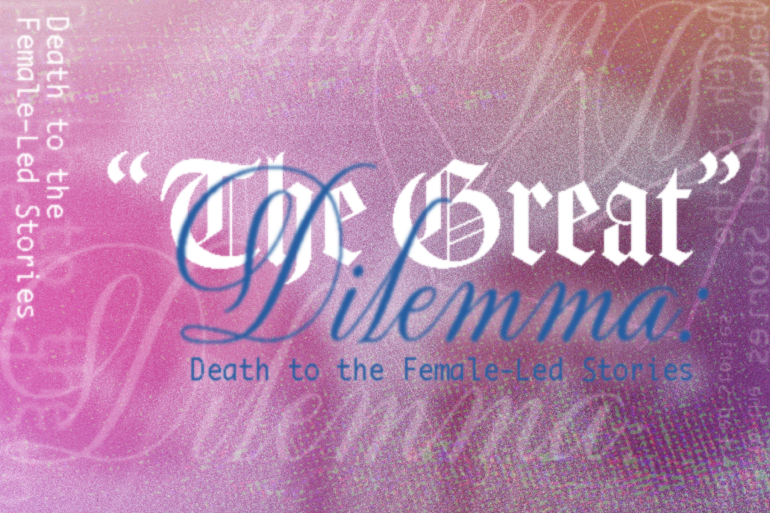It’s been less than a month since Hulu cancelled “The Great,” a dark satire following Catherine the Great, played by Elle Fanning, during her rise to power. The series amassed a cult following during its three-season run, receiving critical acclaim and 7 Emmy nominations, taking home the Emmy for Outstanding Period Costumes in 2022. Like Catherine’s husband, “The Great” saw its life cut short, being eclipsed by Hulu originals like “The Bear” and “Only Murders in the Building.”
I wish I could say this news came as a shock. Unfortunately, “The Great” is one of many female-led series in recent years that have been axed due to low-ratings. “Paper Girls,” “Julie and the Phantoms,” “The Wilds,” and “I Am Not Okay With This,” are just a few series which were cut by streamers after one to two seasons. Shows led by queer women are especially targeted by these cancellations, where streamers like Disney+ and Paramount+ have gone as far as to remove shows like “Willow” and “Grease: Rise of the Pink Ladies” from their platforms entirely.
Streamers’ focus on uplifting female stories remains largely performative, with no end in mind except drawing a profit. Prime Video’s “Paper Girls” saw its cancellation less than two months after premiering, and “I Am Not Okay With This,” while initially renewed, faced cancellation due to Netflix weighing its cost over the show’s inherent value. While both shows were well-received by fans and critics, neither platform provided them the time or funding to prosper.
Even shows like Apple TV+’s “Dickinson” that prevail among the cancellations seem to carry certain contingencies with their success. “Dickinson’s” triumph has been attributed more by critics to its well-timed debut alongside the platform’s launch and its wild subversion of the period piece, than it has for its female and queer representation. The success of shows like “Dickinson” shouldn’t necessarily be seen as a loss for women and the queer community, but I think stories shouldn’t have to rely on whimsy and shock factor alone to receive support from streamers.
Nearly five-months strong in the WGA and SAG strikes, it’s clear streaming companies have a lot to learn when it comes to caring for people and their stories. Streamers have been presented with an opportunity to make thoughtful, lasting changes for industry workers, and I think those changes shouldn’t stop before story. A holistic shift needs to take place, where streamers approach content-creation and renewal based not simply on profits but the true value of a story, its characters, and their impact on audiences–big or small. If streamers can afford an industry-wide shut down for this long, I’m certain they can spare some funding on the stories that count.
Words by Alex Armbruster.
Graphic by Gavin Bacher.

